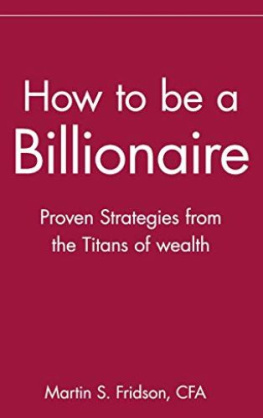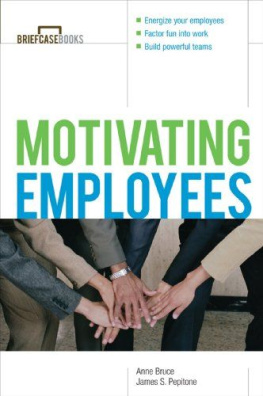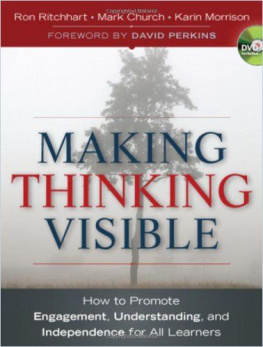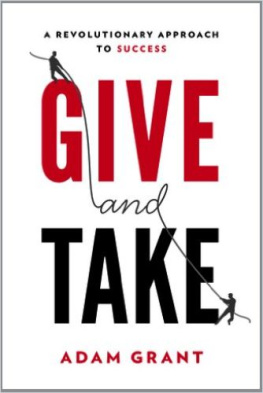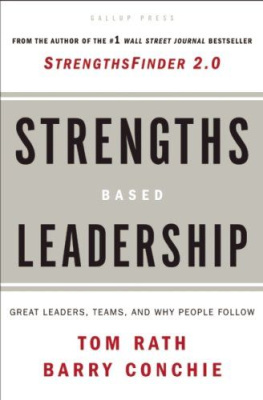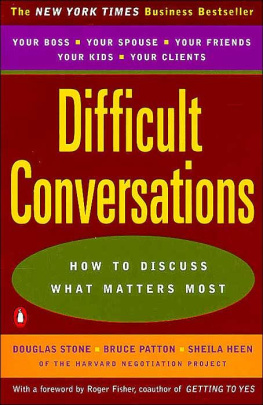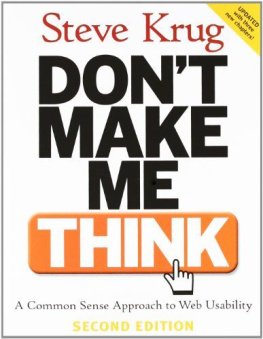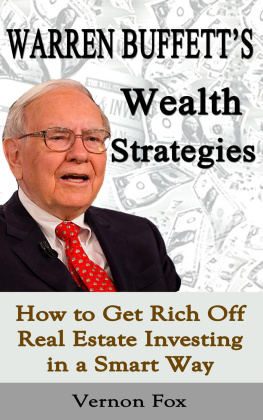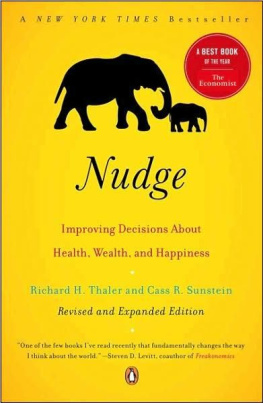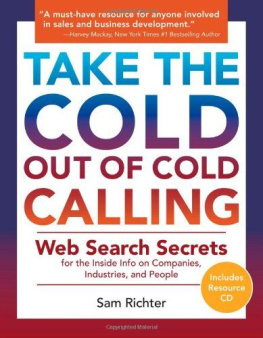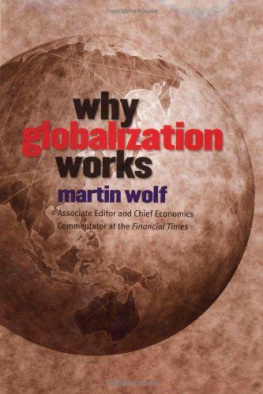If you ever wondered how Bill Gates, Warren Buffet or even John D. Rockefeller got so rich, rest assured it took hard work and restless individualism. Martin S. Fridson profiles self-made billionaires and describes the principles and strategies they used to achieve their wealth. Fridson identifies nine fundamental strategies, which become the basis for each of his chapters. His ideas may sound familiar as may some of the stories he cites, such as the rise of Rockefeller and Bill Gates. However, Fridson combines these ideas and images compellingly, highlighting the major strategies and providing vivid portraits. getAbstract recommends this book to general readers, as well as executives, company owners and anyone who feels driven to get very, very rich.
Summary
The Basic Characteristics of the Super-Rich
If you want to become a billionaire, analyze the careers of past and present billionaires. Forbes listed 268 individuals who had a net worth of a billion or more dollars in the U.S. as of 1999. When you look at the careers of the self-made billionaires - such as the 14 individuals in this book - you will see that they followed these 12 principles that you can apply:
- Look for ways to turn ideas into money.
- Realize that rules are breakable.
- Recognize that copying pays more than creating.
- Keep on growing and improving.
- Hold on to your equity.
- Value hard work (its essential).
- Use financial leverage to increase your wealth.
- Keep the back door open.
- Be willing to make mistakes, and learn from them.
- Be frugal in what you spend, since frugality pays.
- Have fun and enjoy the pursuit.
- Develop a thick skin because you will upset many people as you rise.
Obstacles and Opportunities
A major obstacle that all prospective billionaires face is the menace of competition. Competition is dangerous because it puts a lid on the rate of profit you can achieve as a percentage of sales or of return on your capital. When a company finds a new way to lower its costs or increase its profit margin, it only prevails for a short time. Competitors quickly jump in, either to copy the cost-saving technique or to find other effective ways to economize. Profits fall to the minimum rate necessary to persuade investors to take the risk of investing capital, rather than investing in safer alternatives.
The preferred method of overcoming the leveling effect of competition has migrated over the years from collusion to monopolization and from monopolization to market dominance.
To become a billionaire you must overcome the scourge of competition, which has this leveling effect. At one time, those seeking wealth engaged in various collusive actions. Then, the preferred strategy became monopolization. More recently, the effort has gone into dominating the market. For instance, when he wasnt able to use collusion to get the oil refiners to work together, John D. Rockefeller pursued a strategy of creating a monopoly through the Standard Oil Trust. He took over most of the United States oil refining capacity and kept prices down to discourage competitors from undermining his monopoly position.
Passive investing has not landed a single individual on the current list of billionaires.
U.S. companies today have two major alternatives they can use to overcome competitions leveling effect. You could fix prices and hope the Justice Department doesnt initiate any antitrust actions. You could also play by the rules, but find ways to achieve pricing power through these four major strategies: 1) securing a strong brand identity, 2) gaining patent protection, 3) achieving a dominant market share or 4) finding a sustainable cost advantage.
It is true that new ideas have given birth to many immense fortunes, but the original thinkers have not generally been the ones who made the fortunes.
To become a billionaire, you also must be willing to overcome "the obstacle of social conventions." If you always stick to behavior that most people accept, you are not as likely to gain great wealth. Sam Walton gained his advantage in the retail industry by violating the usual practice of maintaining good relations with vendors. He also made arrangements to deal directly with manufacturers, enhancing his profits even more. You dont have to be popular. Often you will inspire criticism and resentment, but you must accept them to get ahead.
In reality, there are not many bona fide rags-to-riches stories among the self-made billionaires. They came primarily from middle-class backgrounds, typically gaining familiarity with the business world from their fathers experiences. Rather than pulling themselves up by their bootstraps from poverty, they extended the success of previous generations.
Be an active investor. Speculating on stocks may gain you some profits if you can beat the market averages. But for real wealth, you need to take a substantial position in a company and actively influence its future direction. For example, Carl Icahn invested in companies he considered undervalued, and then sought to control their destinies.
Turning Ideas into Money
While new ideas are important in leading to the development of new industries, you dont need to be an original thinker. Generally, those who think of new ideas first dont gain the big fortunes. Rather, those who are most successful capitalize on new ideas - such as Bill Gates did when he built on the ideas that Gary Kildall originally developed at Digital Research.
Being financially astute is a must if you hope to become fabulously wealthy.
Be willing to take calculated risks and gamble, even making big gambles when the time is right. In fact, many billionaires show this willingness through their interest in card games, particularly poker.
Other Characteristics of Billionaires
Some common themes exist in the social backgrounds of todays billionaires. While some, such as Warren Buffet and Carl Icahn, have solid Ivy League educational backgrounds, many others are dropouts. Laurence Tisch dropped out of Harvard Law School. Others have done well without college. Wayne Huizenga dropped out of college and created a fortune through Waste Management. Kirk Kerkorian quit school after the eighth grade and went on to make billions as a dealmaker.

